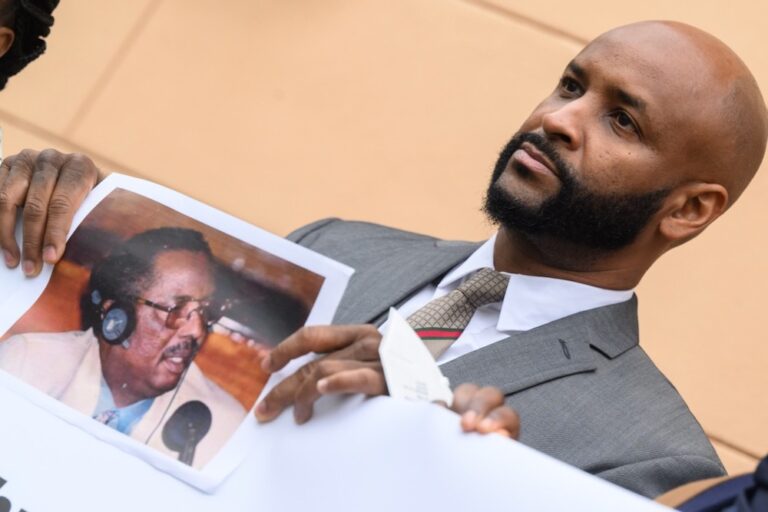(MFWA/IFEX) – On 6 April 2009, Gambia’s Minister of Justice and Attorney General, Marie Saine Farduas, denied the arrest of Chief Ebrima Manneh, a reporter for the “Daily Observer”, a pro-government, privately-owned Banjul-based newspaper. The minister who was responding to questions from Gambian legislators on the government’s failure to respect the Economic Community of West […]
(MFWA/IFEX) – On 6 April 2009, Gambia’s Minister of Justice and Attorney General, Marie Saine Farduas, denied the arrest of Chief Ebrima Manneh, a reporter for the “Daily Observer”, a pro-government, privately-owned Banjul-based newspaper.
The minister who was responding to questions from Gambian legislators on the government’s failure to respect the Economic Community of West Africa’s (ECOWAS) Community Court’s judgement to release Manneh, said: “the state could only release a person from custody, if he or she is in fact in the custody of the State.”
Farduas, who is the first government official to make a public statement on the “disappearance” of Manneh emphasized that: “I have enquired from the Director General of National Intelligence Agency (NIA), the Inspector General of Police and the Commissioner of Prisons, and to the best of their knowledge, information and belief, Chief Manneh is not in their custody.” Following reports of Manneh’s arrest and non action on the part of the authorities, Media Foundation for West Africa (MFWA) filed a writ in June 2007 at the ECOWAS Community Court demanding his release. Despite several notices, the government refused to cooperate with the court.
Explaining the government’s failure to cooperate with the court, the justice minister said: “as far as my office is concerned, the family members of Chief Manneh and their cohorts did not take legal action against the Government in the High Court in accordance with law and procedure against the alleged unlawful detention of Chief Ebrima Manneh by agents of the state security apparatus.”
“The ECOWAS Court was created by treaty and is subject to application of certain rules and procedures, one of which is the exhaustion of local remedies. The government is aggrieved by the decision of the court and has since set the political process in motion to take the matter to the next level and get the decision set aside,” she added.


